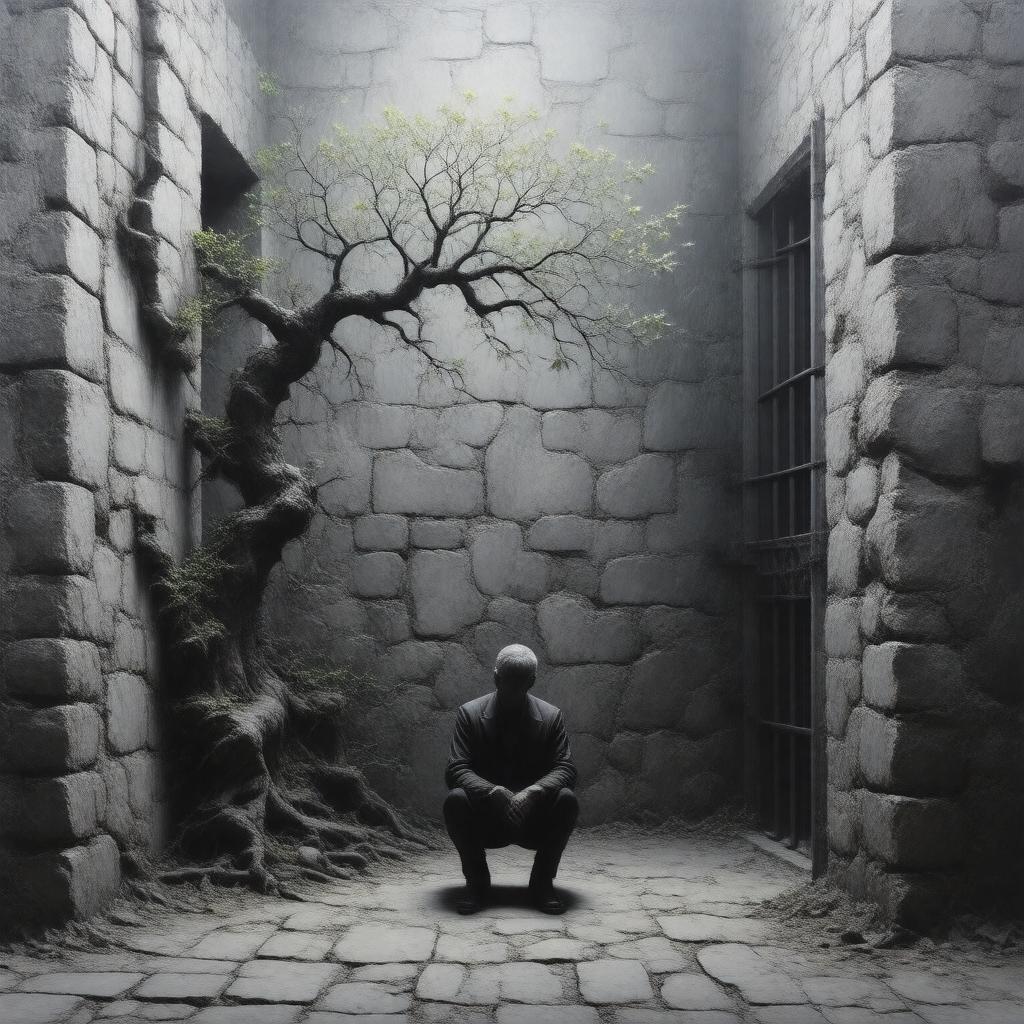Prompt
Generate an image of a serene and contemplative landscape with a small, isolated figure of a man sitting in a jail cell, surrounded by stone walls and a single, barred window through which a tree branch with leaves stretches, symbolizing the tension between individual conscience and government, reflecting the themes of moral responsibility, nonviolent resistance, and the relationship between the individual and the state, in a style that conveys a sense of peaceful protest and introspection, reminiscent of 19th-century American art.

